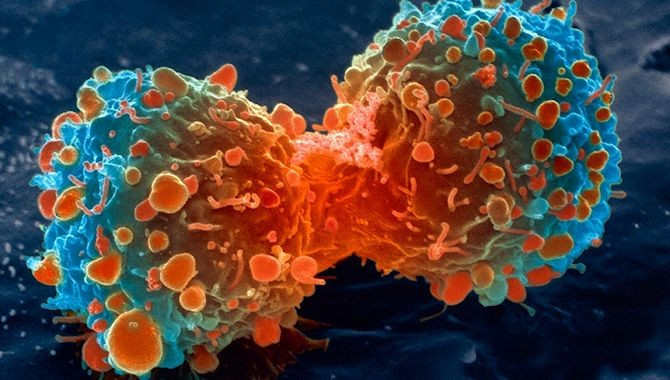Cancer Diagnosis: New Technique Promises Accurate and Early Detection

An innovative technique for early disease detection has yielded up to 98% accuracy, raising hopes of checking diseases like cancer in the beginning stages. Going a step further, it can detect multiple conditions in one single test.
Lead author Phillip Stafford and his colleagues at Arizona State University's Biodesign Institute decided to use a technique called immunosignature, where the entire population of antibodies circulating in the blood at a given time is profiled. Looking at the array, an accurate diagnosis can be made.
Using 20 samples, each from five cancer patient groups, along with 20 non-cancer patients, the technique was tested in blind evaluation of 120 independent samples covering the same diseases. The results demonstrated 95% accuracy.
To further assess the diagnostic power of the method, over 1,500 historical samples, comprising 14 different diseases, including 12 cancers were tested. In this case, 75% of the samples were used in the training phase and the remaining 25% subjected to a blind test.
Remarkably, an average diagnostic accuracy of over 98% was achieved.
The research appearing in the journal Proceedings of the National Academy of Science provides a diagnostic alternative to the biomarker paradigm.
Biomarkers are naturally occurring molecules, genes or characteristics by which a particular disease can be identified. However, they come with disadvantages.
Individual biomarkers often lack the sensitivity and resolution for positive diagnosis. The body's immune response to cancer is complex, heterogeneous and differs from patient to patient depending on the cancer type and stage. Only a handful of cancer biomarkers have approval for clinical use.
Immunosignatures take a different approach. The multiplexed system relies on a microarray, consisting of thousands of random sequence peptides, imprinted on a glass slide. When a tiny droplet of blood is spread across the microarray, antibodies in the blood selectively bind with individual peptides, forming a portrait of immune activity. The result is an immunosignature of a disease or a condition.
As the peptide sequences are random and not related to any naturally occurring disease antigens, the technique is "disease agnostic," which means that a single platform is potentially applicable to multiple disease types.
In one experimental trial, researchers were able to detect and distinguish a complex, heterogeneous disease -- stage IV breast cancer, relative to four other cancers and healthy controls. In the second trial, 14 separate diseases were distinguished from one another as well as from healthy controls, through immunosignatures.
Among the cancers tested were three different stages of breast cancer, four different brain cancers, two pancreatic diseases, ovarian cancer and two different blood cancers.
© Copyright IBTimes 2025. All rights reserved.




















